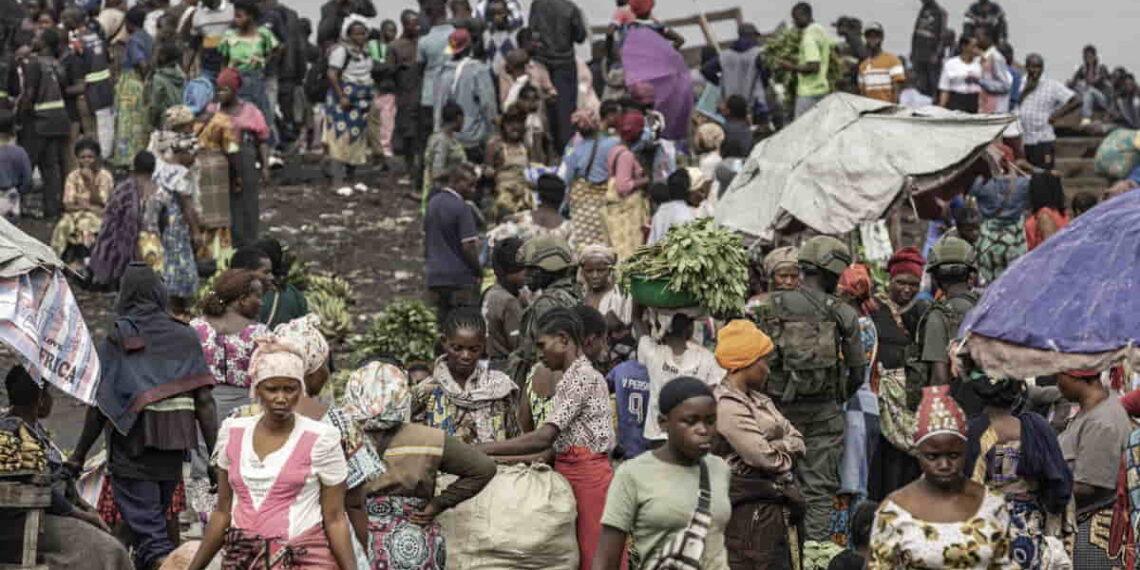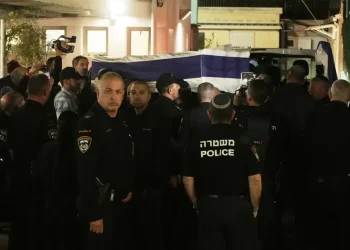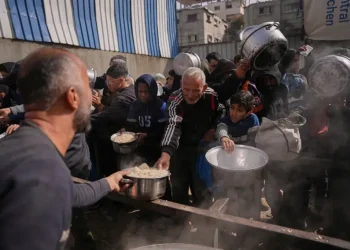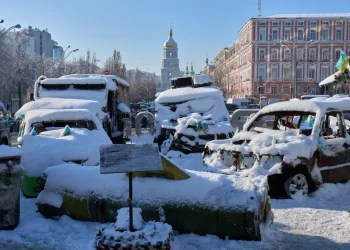Over 700 Killed in Five Days of Intense Fighting in DR Congo, UN Reports
Escalating Violence in Eastern DR Congo Claims Hundreds of Lives
The Democratic Republic of Congo (DRC) is witnessing escalating violence, with over 700 people killed and 2,800 injured in just five days of intense fighting between January 26 and 30. The United Nations has raised alarms about the devastating toll the conflict is taking on civilians, as the situation continues to worsen.
According to UN Secretary-General spokesperson Stephane Dujarric, these numbers are expected to rise as humanitarian organizations continue to assess the situation on the ground.
Rebel Advances and Territorial Gains in Eastern DR Congo
The World Health Organization (WHO) and its partners, in collaboration with the DRC government, reported the grim toll of casualties during an assessment conducted between January 26 and 29. Dujarric emphasized that the humanitarian impact is significant, citing the widespread looting of aid warehouses and offices in the city of Goma.
On January 30, the city of Goma, located in North Kivu province, was reported to have fallen under the control of the AFC/M23 rebel coalition, marking the latest in a series of territorial gains by the rebel group. The Congolese government has accused Rwanda of supporting the M23 rebels, though this claim remains unconfirmed. Despite the government’s denial, it has acknowledged that Goma is under siege.
Humanitarian Crisis Deepens as Goma Faces Shortages
The humanitarian situation in Goma is dire. With the M23 rebels making rapid advances, including taking control of key areas, civilians in the region are facing severe shortages of essential goods. Basic necessities are scarce, and access to safe drinking water has been completely cut off, leaving people with no choice but to rely on untreated water from Lake Kivu, which poses a significant health risk.
The United Nations Office for the Coordination of Humanitarian Affairs (OCHA) has warned that without immediate action, the risk of waterborne disease outbreaks in the region will continue to rise.
Government Response and Ongoing Tensions
On January 28, President Felix Tshisekedi of the DRC vowed to mount a “vigorous and coordinated response” against the M23 rebel coalition. He expressed his determination to defend the nation’s mineral-rich eastern regions, which have long been a source of conflict. Local troops, many of whom have been forced to surrender to the rebels, are also under pressure.
Meanwhile, Jean-Pierre Lacroix, the UN Under-Secretary-General for Peace Operations, stated on January 30 that while sporadic shooting continues, overall calm is gradually being restored in Goma. However, the rebels are reported to be moving quickly, with their forces located just 60 kilometers north of the strategic city of Bukavu, further intensifying fears of broader instability.
Humanitarian Aid Struggling to Meet Growing Needs
Humanitarian organizations are working tirelessly to provide aid, but the ongoing violence and displacement of local populations have made it challenging to deliver assistance. Looting and insecurity have left the region’s aid offices and warehouses vulnerable, complicating efforts to address the growing crisis.
The WHO and other partners continue to monitor the situation, with a focus on preventing the spread of diseases amid worsening sanitation conditions.
Urgent Call for Action
The UN and humanitarian groups are calling for urgent international support to address the humanitarian crisis in Eastern DR Congo. Without immediate intervention, both the human cost of the conflict and the risk of further health crises will continue to grow.
As the M23 rebels continue to gain ground and the safety of civilians remains in jeopardy, the international community is urged to increase efforts to provide humanitarian assistance and seek a long-term resolution to the violent conflict that has plagued the region for years.
This article was rewritten by JournosNews.com based on verified reporting from trusted sources. The content has been independently reviewed, fact-checked, and edited for accuracy, neutrality, tone, and global readability in accordance with Google News and AdSense standards.
All opinions, quotes, or statements from contributors, experts, or sourced organizations do not necessarily reflect the views of JournosNews.com. JournosNews.com maintains full editorial independence from any external funders, sponsors, or organizations.
Stay informed with JournosNews.com — your trusted source for verified global reporting and in-depth analysis. Follow us on Google News, BlueSky, and X for real-time updates.













